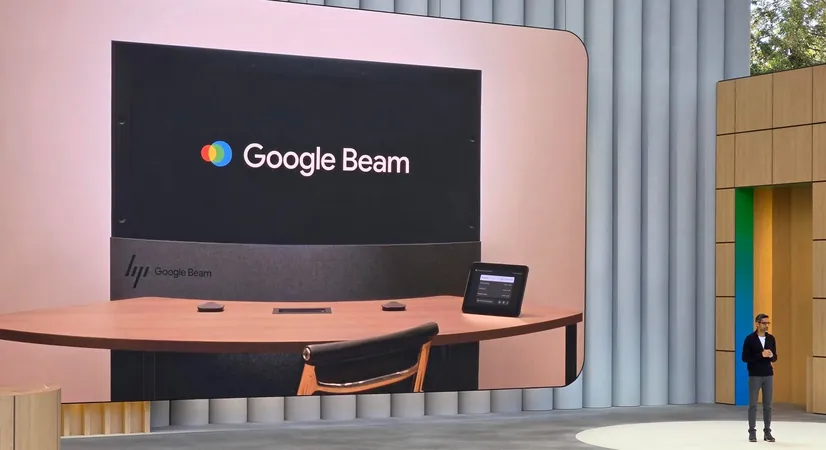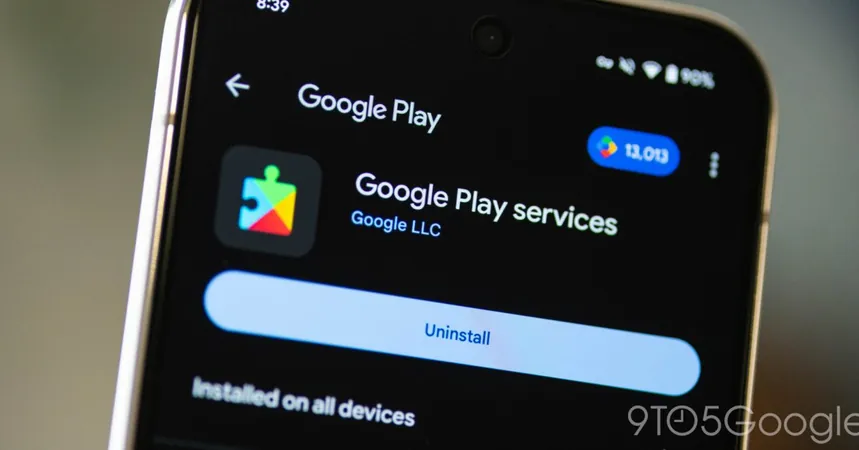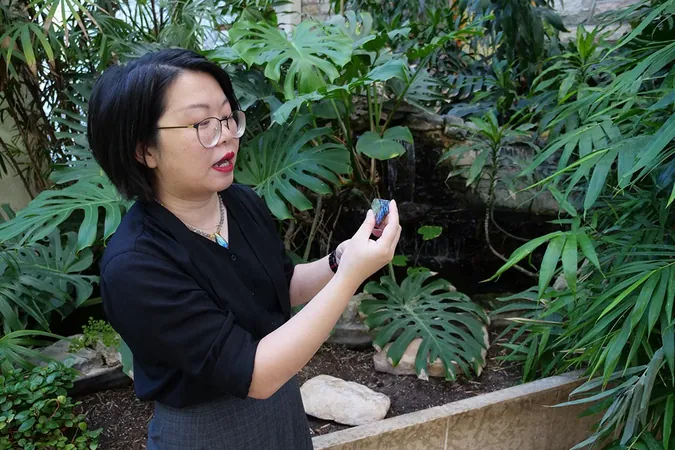
Google I/O 2025: AI and XR Dazzle as Android Takes a Back Seat
2025-05-21
Author: Amelia
Google’s AI Revolution Steals the Show
This year's Google I/O event was a spectacle of innovation, putting artificial intelligence (AI) and extended reality (XR) in the spotlight while Android took a back seat. Showcasing its commitment to AI, Google announced a staggering 50-fold increase in usage of its Gemini AI models, particularly after launching Gemini 2.5 in March 2025.
The tech giant appears to be on an AI acceleration spree, replacing Google Assistant in many areas as it focuses resources on Gemini. This strategic pivot is anticipated to enhance user experiences across various platforms, including Google TV, Android Auto, and WearOS, signaling a new era for Android XR.
Gemini Everywhere: AI on the Rise
In its quest to integrate Gemini into everyday interactions, Google emphasized the importance of on-device AI. Enhancements were announced to LiteRT, its local AI model runtime, designed to optimize performance on smart devices. Google introduced the AI Edge Portal to facilitate developers in refining their AI models, promising low-latency, secure user experiences, especially in connectivity-challenging scenarios.
Android XR: A Glimpse into the Future
The focus was also on Android XR, with key updates making waves at I/O. Google's new Material 3 Expressive design system aims to deliver snappier experiences across its OSes, tying into the overarching theme of blending AI with XR to create cutting-edge user experiences. Google’s partnerships with Samsung and the upcoming Project Moohan highlight this innovation drive.
As part of an initiative to develop AI-powered smart glasses, Google has committed $150 million to collaborate with Warby Parker, which excels in technology integration. This partnership has potential to rival offerings from Meta, as they aim to meld style with cutting-edge technology.
Project Aura: Bridging the Gap in XR Technology
Also unveiled was Project Aura, a headset developed with Xreal. This new product offers a sweet spot between immersive experiences and smart glasses, aiming to compete directly with Meta's offerings. With its significant field of view, Project Aura is poised to enhance the AR experience for users.
Introducing Google Beam: A New Era of Communication
Another game-changer emerged in the form of Google Beam, the rebranded Project Starline, reinvented for enhanced XR conferencing experiences. Featuring near-real-time translated conversations that maintain voice nuances, Beam's technology aims to redefine remote communication.
Analysts Weigh In: Google’s Future in AI and XR
Analysts are optimistic about Google’s new direction, noting that it finally understands the crucial interplay between AI and XR. The company aims to build a robust XR ecosystem, rivaling competitors like Apple and Meta, which could reshape the landscape of user interaction in the coming years.
As Google commits to partnerships and the continuous evolution of its XR initiatives, the success of this endeavor could be pivotal in defining its future.









 Brasil (PT)
Brasil (PT)
 Canada (EN)
Canada (EN)
 Chile (ES)
Chile (ES)
 Česko (CS)
Česko (CS)
 대한민국 (KO)
대한민국 (KO)
 España (ES)
España (ES)
 France (FR)
France (FR)
 Hong Kong (EN)
Hong Kong (EN)
 Italia (IT)
Italia (IT)
 日本 (JA)
日本 (JA)
 Magyarország (HU)
Magyarország (HU)
 Norge (NO)
Norge (NO)
 Polska (PL)
Polska (PL)
 Schweiz (DE)
Schweiz (DE)
 Singapore (EN)
Singapore (EN)
 Sverige (SV)
Sverige (SV)
 Suomi (FI)
Suomi (FI)
 Türkiye (TR)
Türkiye (TR)
 الإمارات العربية المتحدة (AR)
الإمارات العربية المتحدة (AR)